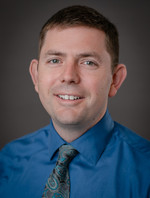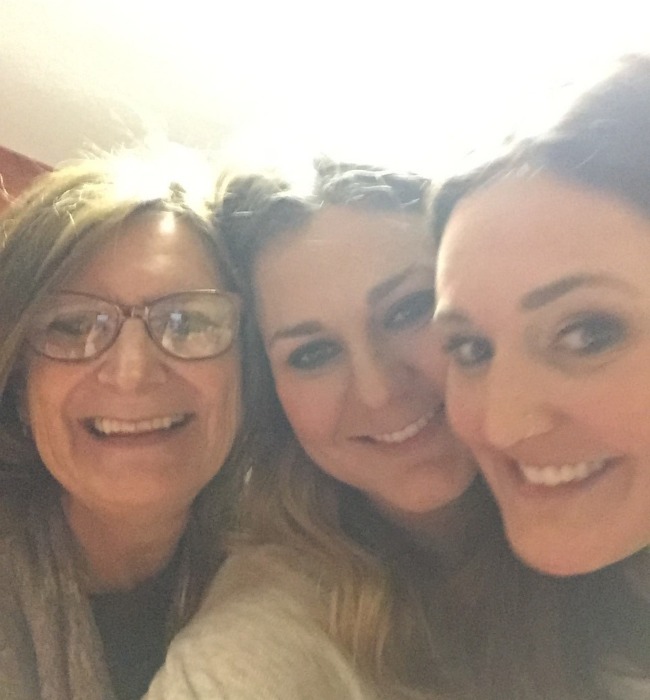
The Meaning of Care Magazine
‘World-Class’ Care in Omaha: How Innovative Procedures at Methodist Are Changing Lives
Published: Aug. 24, 2021
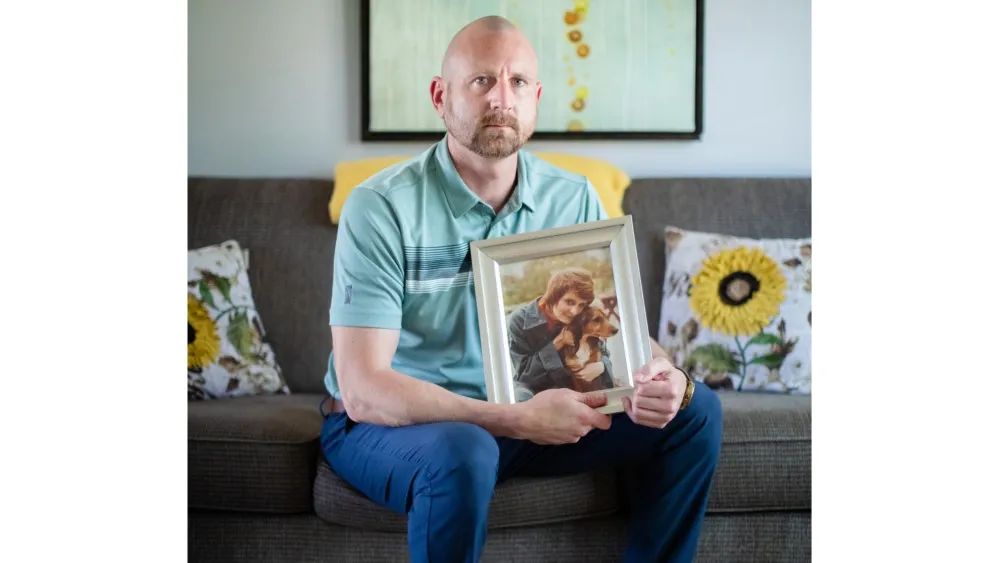
Nothing was more important than family for Michele Cooper.
When her father was battling throat cancer, she relocated from Omaha to Illinois to care for him. When her daughter Emily made the same move to start a new career, Michele welcomed her to move in. And when daughter Jessica followed in search of change, Michele was there again to be a mother and roommate.

“We had an incredibly close family,” said Matt Cooper, the oldest of Michele’s three children. “My mom was essentially the glue that held us all together. One of her biggest dreams was to become a grandmother and create memories with her grandkids that would last a lifetime.”
That dream came true in late 2016, when Jessica and her husband welcomed Jaxon – and Michele became “Mimi.” She had no idea that her growing family would soon become her driving force as she battled a rare cancer that ultimately took her life.
“Giving Up Wasn’t an Option”
Michele returned to Omaha in spring 2017 to focus on her HR consulting business. Soon after, her hairdresser noticed that her skin looked jaundiced. It was the first indication Michele had that something was wrong with her health.
She went straight to Methodist Hospital, where blood work indicated a problem with her bile ducts, and she experienced her first endoscopic retrograde cholangiopancreatography (ERCP) procedure, where a gastroenterologist guides an endoscope – a flexible tube equipped with a camera – through the esophagus and to the stomach and bile ducts. In this case, Tyron Alli, MD, of Midwest Gastrointestinal Associates (Midwest GI) then inserted stents into her ducts to help them drain normally.
After leaving the hospital, Michele began seeing Midwest GI gastroenterologist Michael Schafer, MD, who does the bulk of his work at Methodist Hospital. A computerized tomography-guided biopsy in the weeks that followed identified the problem: cholangiocarcinoma, or bile duct cancer. The rare condition is diagnosed in about 8,000 people in the U.S. annually, but when it is, it usually has advanced past the possibility of surgical removal.
“She was overwhelmed. She was scared,” Matt said. “But giving up just wasn’t an option for my mom. Her main objective was, ‘I’m going to do everything they want me to do, because I am a Mimi, and I want to be there for my kids and grandkids.’ That’s what she fought for and looked forward to.”
Michele had always been the family’s rock, but now the roles were reversed. She moved in with Matt, who took the lead on managing her care at home. Meanwhile, Dr. Schafer, Nebraska Cancer Specialists oncologist Timothy Huyck, MD, and the rest of her team at Methodist had a plan.
“We felt comfort once we had Dr. Schafer and Dr. Huyck,” Matt said. “Those were our two guys. They would break it down so we understood what was going on. They didn’t give false hope, but they also didn’t give us a definitive timeline because they were going to do everything in their power to prolong her life.”
Early on, that meant chemotherapy and ERCP procedures every few months to insert and replace stents. But about a year after Michele’s diagnosis, the team began performing a cutting-edge procedure.
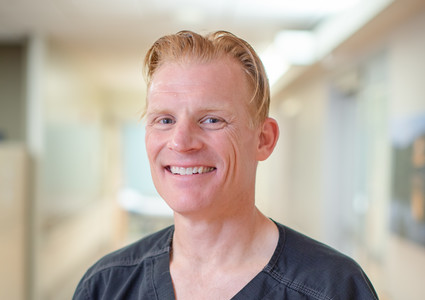
Pursuing the Best Treatment Options
Dr. Schafer said he’s always been drawn to new technologies and techniques – a commitment shared by his colleagues and the leadership team at Methodist Health System.
“It’s hard to really even quantify how important that is,” he said. “You want to offer your patients the best possible treatments that are available.”
So when he read about radiofrequency ablation for cholangiocarcinoma, he knew he had to bring it to Methodist.
The procedure involves locating the tumor with ERCP, then using high-intensity radiofrequency waves to destroy it with heat. Dr. Schafer is the only specialist in the region who performs the procedure, but that exclusivity is bittersweet.
“I always tell patients that this is not a cure, but there’s good data that it will extend their lives,” he said. “Especially in a disease like this, where there’s no surgical therapy and there’s no chance for a cure, it’s always great to offer something else to help extend patients’ lives. When there’s nothing left, people want something to hope for.”
Dr. Huyck put it more simply: “It’s world-class medical care in the Omaha area.”
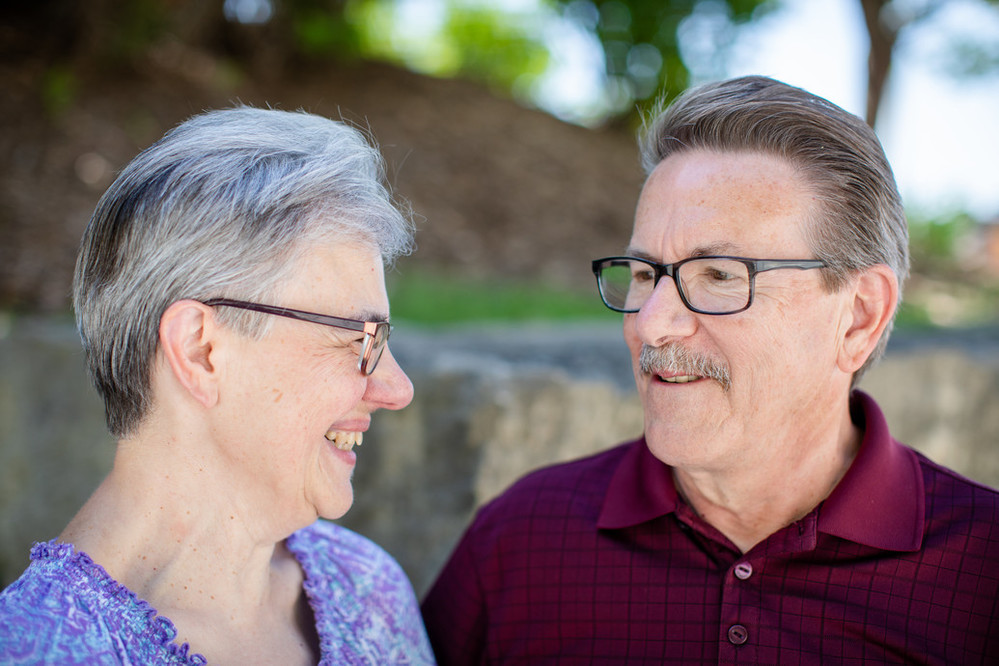
“One of the Lucky Ones”
The radiofrequency ablation procedure is just one way Dr. Schafer and Methodist are pushing ahead to bring the latest treatments to patients. Another is endoscopic submucosal dissection (ESD) – using an endoscope to cut early-stage tumors from the gastrointestinal tract. The procedure has become more common in the past five years but isn’t widely available outside of major cities with experienced providers like those at Midwest GI and Methodist.
For John Severe of Sioux City, Iowa, simply having ESD available was a “godsend.”
John’s journey to Methodist began in late 2019, when his local gastroenterologist referred him to Midwest GI for treatment of precancerous cells caused by Barrett's esophagus – when the lining of the esophagus heals abnormally after being damaged by acid reflux. John underwent a common endoscopic ablation procedure twice to destroy those cells, but a follow-up exam in December 2020 revealed another problem: cancer at the base of his esophagus.
About 19,000 people in the U.S. are diagnosed with esophageal cancer annually. Fortunately for John, his was detected early.
“The problem is, most of them aren’t diagnosed in the early stages like that,” Dr. Schafer said. “You don’t get the warning signs until very late. If it spreads from the esophagus to lymph nodes, it’s very hard to cure. And if it spreads outside lymph nodes to other organs, it’s impossible to cure.”
Dr. Schafer and Methodist surgical oncologist George Dittrick, MD, agreed that ESD was the best option for John – and it should be performed soon, before his cancer spread and required a more invasive approach.
John underwent the procedure on Jan. 15 and went home the same day. Three months later, Dr. Schafer performed a biopsy of the affected area and confirmed the cancer was gone.
Looking back, John marvels at how his story unfolded.
“I feel like I’ve been kind of blessed, you know?” he said. “First to be referred to Midwest GI. And secondly to be treated by doctors who really know their business and really want to take great care of you. I just feel very fortunate that I was one of the lucky ones who had the opportunity to see what this procedure could do. Nobody wants to go through any type of surgery, but this is so noninvasive that it’s just a no-brainer in my mind.”

Memories To Last a Lifetime
Michele’s family knew the long odds she was facing, but they were determined to make the most of the time she had left. The birth of her second grandchild, Camryn, in July 2018, only strengthened Michele’s resolve.
Working around her ERCPs and chemo appointments, the family hit the road. They had cabin trips to Mahoney State Park, staycations at Jessica’s home in Illinois and an unforgettable vacation in Branson, Missouri. They took photos everywhere they went, creating a keepsake video slideshow for each of their adventures.
During this time, Michele also talked Matt into getting a puppy. She named him Berkeley for her hometown in Illinois.
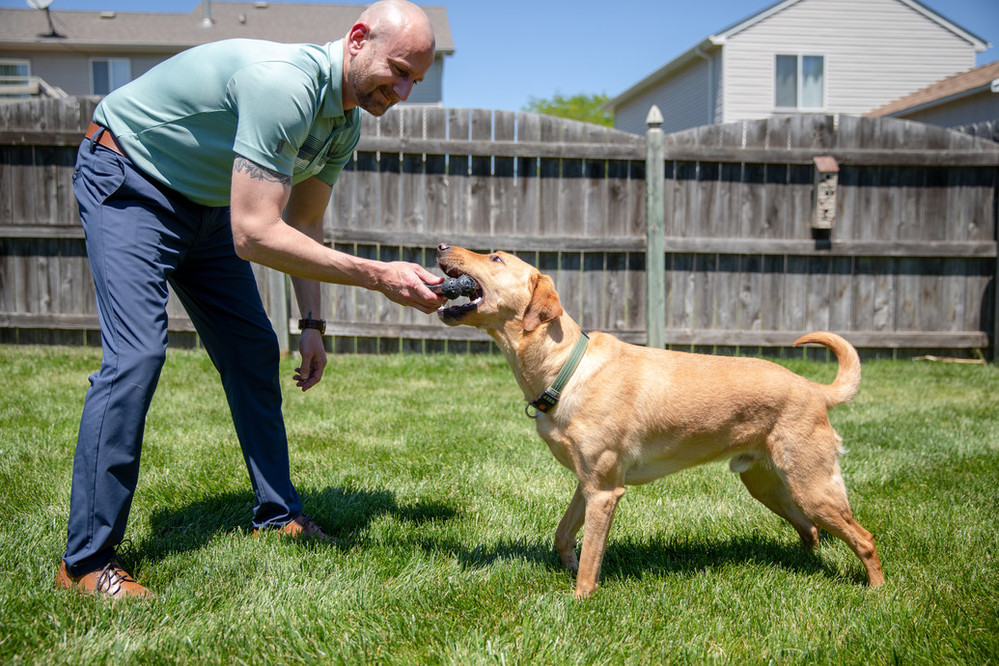
“I think part of the reason that she wanted to get this dog was because she knew that when she was gone, I would kind of need somebody around,” Matt said. “Berkeley is kind of the addition to my family that my mom pushed on me, and I’m glad she did.”
From June 2018 to February 2020, Michele had nine ablations aimed at keeping her cancer at bay. For a time, it was working, buying Michele and her family more time to spend together. But as the months went by, her cancer proved too aggressive. In spring 2020, her care team determined that further chemo and ablations would do more harm than good. The focus shifted to Michele’s comfort. In her final days, she would watch the slideshows from the family’s travels.
“Now those are like the most precious videos that we have,” Matt said.
Michele lost her battle with cancer last July, but her family believes her Methodist team gave her more time to make the memories they now all cherish.
“It sounds weird to say that it was a great experience, but it was the best experience that it could be for the worst situation you could imagine,” Matt said. “She got the best care team ever through Methodist.”
Photos by Daniel Johnson
More Resources
- Learn more about cancer care at Methodist.
- Read more from the summer 2021 issue of The Meaning of Care Magazine.
- Follow Methodist on Facebook, Twitter and Instagram.

